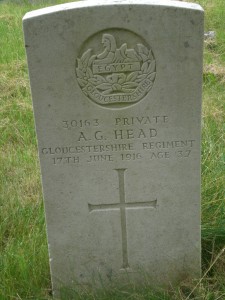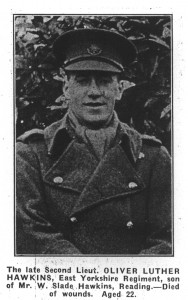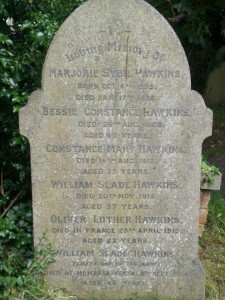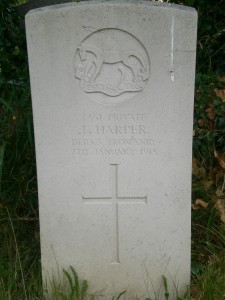Arthur George Head
Private 30163
15th Battalion Gloucestershire Regiment
Division 33
 |
Arthur George Head, was the son of Alfred and Hannah Head, of 12 Derby Street, Reading. His death was reported in the Reading Standard 24th June 1916, he was 37.
“After having joined the Colours a couple of days, Arthur Head of 12 Derby Street, Reading, was found dead with his throat cut, in the scullery of his home on Saturday evening. The deceased, employed by Huntley, Borne and Stevens, joined up under the Derby Scheme, he was in Group 15, and was single. He obtained exemption on an appeal made by his employers. He had been fitted for his uniform on the Friday. At the inquest two reasons were put forward for him taking his life. One was the death of his brother in law to whom he was attached, and the other was the fact of his having to join up.
His parents found him lying on the scullery floor on their return from shopping, with his face covered in blood. A neighbour and the doctor were sent for. He had a big gash in his throat and a razor was by his side. A note on the table said “I am sorry, but my head has played me up so. I am not a coward”. The verdict was suicide during temporary insanity”.
Arthur Head is buried in a registered war grave number 10996 and this is marked with a CWGC war pattern headstone.


